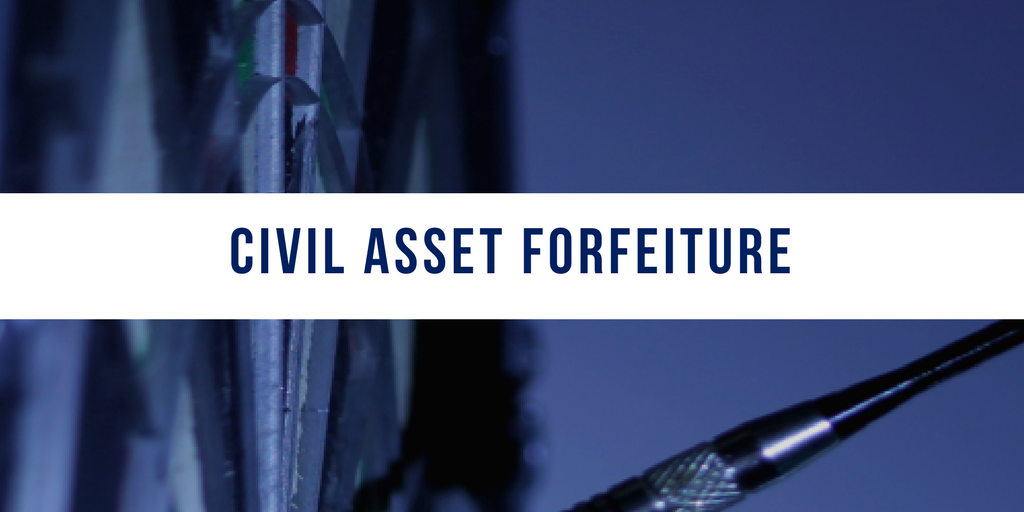
Nevada should not rely on federal action to curb forfeiture abuse
By Daniel Honchariw
Civil libertarians were recently alarmed to learn that U.S. Attorney General Jeff Sessions intends to revamp the law enforcement practice known as civil asset forfeiture, including its related Equitable Sharing Program, at the federal level.
“With care and professionalism, we plan to develop policies to increase forfeitures,” proclaimed Sessions at a July gathering of law enforcement officials in Minneapolis. “Adoptive forfeitures are appropriate as is sharing with our partners.”
Civil asset forfeiture, which allows police to seize a person’s property based merely on the suspicion that such property was involved in criminal activity, is ripe with examples of institutional abuse. (Click here and here for two such examples.)
The potential for abuse has properly been attributed to the perverse incentives inherent in the practice — namely, that law enforcement agencies generally keep whatever proceeds they seize. The more they seize, the bigger their budgets.
In fiscal year 2016, statewide law enforcement seized $4.4 million, according to the Nevada attorney-general’s aggregate report.
Additionally, federal forfeiture proceedings typically deny the most basic aspects of due process for the person whose property is being seized. In fact, criminal charges — let alone criminal convictions — are not even required for federal law enforcement officers to seize property.
All of these things simply increase the potential for abuse.
Notwithstanding widespread reports which detail how the program has been abused, Sessions has decided to remove the restrictions upon the use of forfeiture imposed in 2015 by Eric Holder, President Obama’s then-attorney general. Sessions’ plan will reinstitute the Equitable Sharing Program, which allows local police to partner with federal authorities to seize property, then rewards the cooperative local entity with up to 80 percent of whatever assets are at stake.
Fortunately, Nevada’s elected officials can minimize the collateral damage of the feds’ recent decision to breathe new life into the practice by minimizing or eliminating the state’s exposure to Equitable Sharing.
The Equitable Sharing Program is worrisome because it permits and even incentivizes local police agencies to disregard state and local restrictions on the use of forfeiture by partnering with federal authorities.
In such cases, federal law governs, rendering local restrictions on the practice moot — and there are, unfortunately, few due-process protections afforded to alleged lawbreakers under federal forfeiture statutes.
Thus, even in states which have successfully codified limitations on the use of civil asset forfeiture — including Nevada — federal action now threatens to undo the practical effects of those reforms.
A recent NPRI commentary in the Reno Gazette-Journal elaborated:
…Under the federal program of Equitable Sharing, local law enforcement can effectively skirt local due process requirements by working in tandem with federal agencies. In such circumstances, the local agency collects up to 80 percent of the forfeited proceeds, even absent a conviction against the alleged law-breaker. Perversely, this creates an incentive for local authorities to abuse the practice, a phenomenon dubbed “policing for profit.”
Yet on the federal level, there is some good news: A bipartisan coalition of U.S. House members has apparently taken issue with Sessions’ decision to reinvigorate the Equitable Sharing Program.
Last week, the House passed five amendments onto budget legislation in an attempt to rebuke the attorney general. A majority of those amendments redirects funding previously earmarked for federal forfeiture efforts, thereby decreasing the size of Sessions’ purse to implement the program.
While it is certainly encouraging to witness congressional leaders defy Sessions’ police-state tactics, it is still important to note that Nevada can solve this problem of its own volition, irrespective of what develops in Washington.
Changes to state law can effectively curtail local law enforcement’s ability to cooperate with federal authorities via Equitable Sharing — in effect guaranteeing that Nevada’s restrictions on the use of forfeiture will be respected, due process and all.
For a guiding example, they can turn to Pennsylvania.
Based upon the same reasons presented herein, Pennsylvania law now declares, “State law enforcement authorities shall not refer seized property to a Federal agency seeking the adoption by the Federal agency of the seized property.”
The Nevada Legislature should enact the same — regardless of whether or not congressional efforts to curb the abuse of civil asset forfeiture bear fruit.
If it doesn't, Nevadans will continue to run the risk of federal law enforcement disrespecting the state's decision to protect the principle of due process.
Daniel Honchariw is a policy analyst at NPRI.